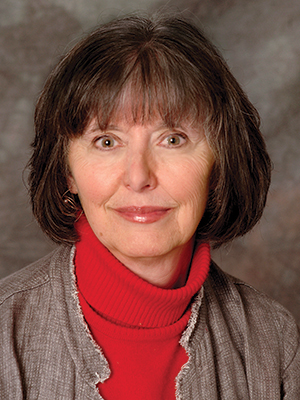
Hester Hill Schnipper Photo courtesy of Beth Israel Deaconess Medical Center
A LOT OF THE KNOWLEDGE we have about current treatments comes from clinical trials. You may be wondering if an experimental drug might be better than your current treatment plan.
Remember that studies strive to provide answers that are not yet known. Occasionally, a treatment in a clinical trial turns out to be a home run. More often, these newer approaches are only a bit better than standard treatments, and they can be less effective. In fact, a recent study found that only one in 20 oncology drugs tested in phase I trials eventually receive U.S. Food and Drug Administration approval.
Still, some cancer patients decide to take part in a drug trial, hoping for a personal benefit but also seeking to contribute to science. It’s a common misconception that you must have advanced disease to participate in these types of studies. In fact, numerous clinical trials are available to patients at all stages of their disease. (A searchable registry of clinical trials is available at clinicaltrials.gov.)
Familiarize yourself with clinical trial phases.
Before you enroll in a clinical trial, familiarize yourself with the main phases.
- Phase I clinical trials test the safety of a new drug, generally for the first time. The first participants in this type of trial get a low dose of the drug. If there are minimal side effects, other participants get a larger dose to identify the highest possible and safest dose.
- Phase II clinical trials provide more safety information and explore the effectiveness of the drug to find out if it works for a particular cancer.
- Phase III clinical trials explore how effective and tolerable the new treatment is compared with the standard of care.
Here are some questions to ask before participating in a clinical trial.
1) Am I good candidate for a clinical trial? What are the potential benefits of my participation? What are the potential downsides for me?
2) How much will my insurance cover? Many clinical trials are funded by government agencies or pharmaceutical companies, which often pay for the cost of experimental medications, extra blood tests and scans given for research purposes. Most insurance plans are required to cover routine patient care costs during a clinical trial. Plans are not required to cover out-of-network doctors if they are not part of your insurance coverage.
3) How many extra trips to the hospital will be needed? Will there be extra blood draws or scans?
4) Are there alternatives, including standard treatments, that I should also be considering?
5) What effects will participation in this trial have on my daily life?
You can change your mind and withdraw from a trial at any time. But before agreeing to take part, do your homework and be realistic. You aren’t signing up for a miracle; you are signing up to help doctors gather information. It is a bonus if the treatment also helps you.
Cancer Today magazine is free to cancer patients, survivors and caregivers who live in the U.S. Subscribe here to receive four issues per year.




